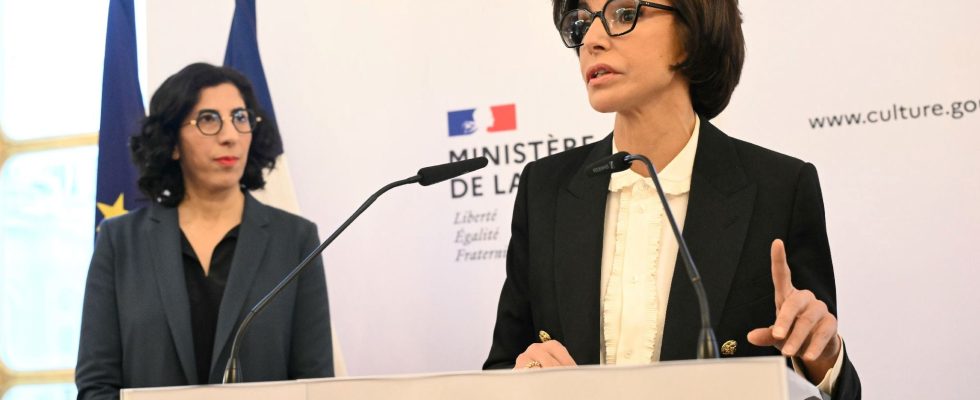The appointment of Rachida Dati triggered a tsunami of political comments but nothing of substance. The only ones who cared about the policy that the new minister was going to pursue were the artists, paralyzed by a “right-wing” of the Ministry of Culture and by the possibility of a liberal wave – even if Rachida Dati would have to be liberal , which remains to be proven. Asked about this surprise appointment on BFMTV, it did not take fifteen seconds for actor Charles Berling to ask the new minister for more public money.
Nothing surprising in this: for a very large part, the world of culture cannot see itself as anything other than infinitely subsidized, and cries out for ultraliberalism even before it hurts. In truth, this sector is one of the most socialized in the world, even though the results of these expenditures, on the quality of the offer as well as on access to culture, are not the subject of systematic evaluations. . More state, would that necessarily be good? Less State, necessarily bad? Well no.
France, more generous than the European average
Already, it should be noted that, since the creation of this ministry in 1959, its budget has increased, at an irregular rate certainly, but faster on average than that of the State. We note two accelerations in this trajectory: in 1981, with the arrival of the socialists in power, and in 2017 with the election of Emmanuel Macron. In 2024, this budget amounted to 11 billion euros, an increase of 6% over one year, i.e. more than inflation. Relative to GDP, the budget of the Ministry of Culture is higher than the European average. Added to this is the significant support from local authorities: 2.5 billion euros for live entertainment, for example. Finally, we must not forget this French specificity which is the intermittency of the show. This public social insurance system allows the entertainment ecosystem to receive income that is significantly more stable than that spontaneously generated by the sector’s activity. It costs several hundred million euros per year, a sum which weighs heavily on unemployment insurance, but which could logically be attributed to the Ministry of Culture.
A cultural offer inflated “blindly”
The problem is that this inflation of resources does not translate into a significant improvement in access to culture. Let’s take two examples: the theater and the Culture pass. The Court of Auditors points out that public support for live theater makes it possible to maintain an abundant offer of shows in the territory. Alright. It nevertheless seems that the democratization of theater is struggling, as evidenced by the decline in the proportion of young people who go to theaters. This unfortunate result is hardly surprising. When we socialize a sector, we inflate the offer “blindly” and we generate rents that are almost impossible to raise.
As for the Culture pass, it costs a little more than 200 million euros per year, for an assessment that remains to be established. It is universal, therefore accessible without resource conditions. We know that young people primarily use it to purchase books, but we don’t know which ones. In other words, we are absolutely certain to have created, thanks to the Culture Pass, an income for the world of publishing, but we are not sure to have contributed to democratizing access to classical culture.
A machine for distributing aid
The Ministry of Culture has become a gigantic administration which distributes aid and thus satisfies the corporatism of its clientele. But where have we seen that there is a systematic link between budgetary voluntarism and culture? In his work Creative Destruction (2002), the American economist Tyler Cowen showed that the development of the cultural offer and its expansion were primarily explained by the level of wealth of the countries, more than by the budgets dedicated to cultural policy. Indeed, the richer a society is, the more resources it has to finance art and creation. The more open it is economically and financially to the world, the more diverse its culture is. The freer and more competitive the economy, the more citizens have access to a modest and qualitative cultural offering. Summarizing French culture to its budget is a total contradiction.
Nicolas Bouzou, economist and essayist, is director of the consulting firm Astères
.
